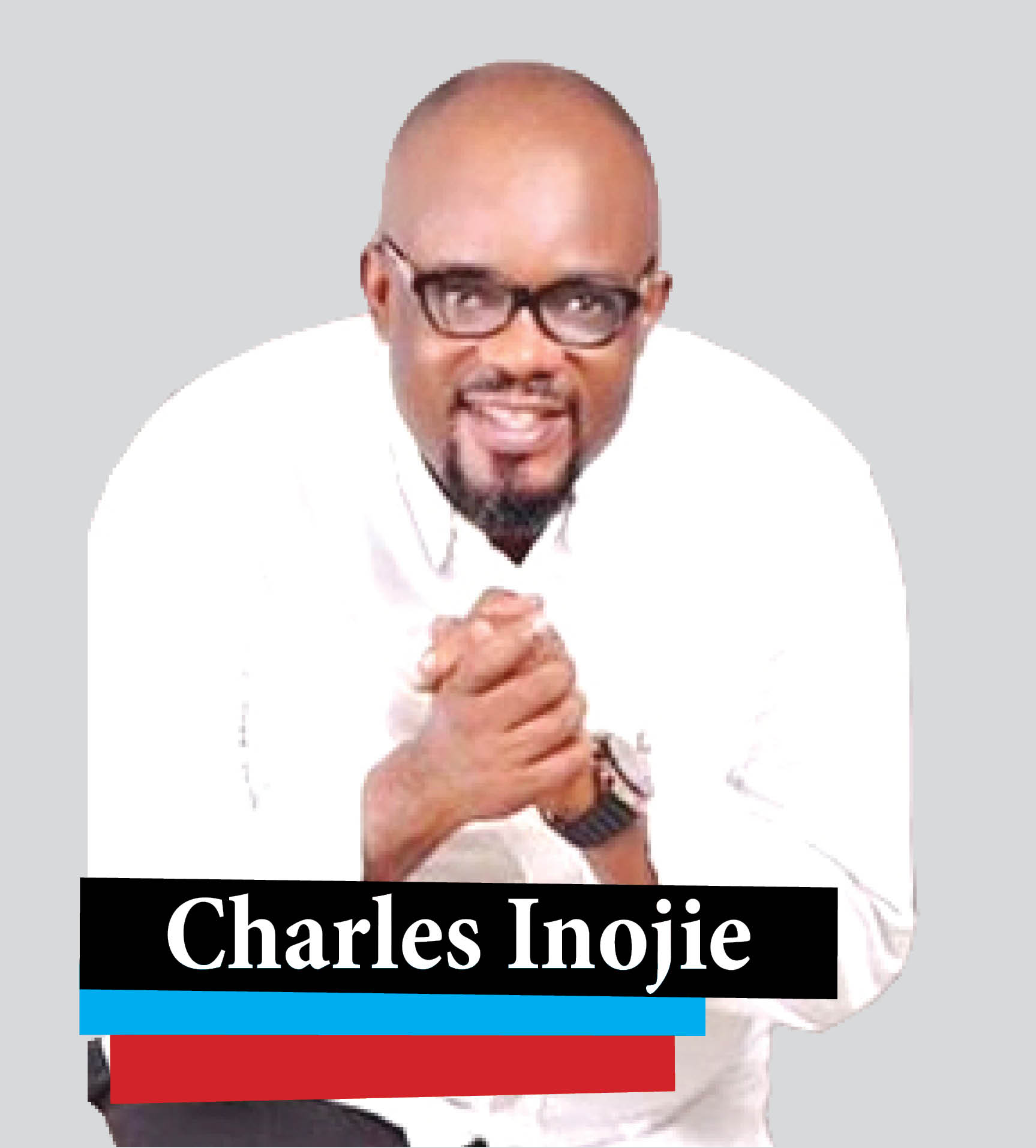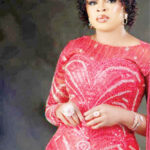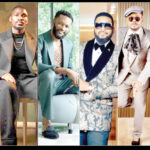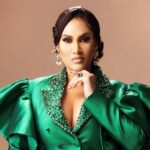Popular Nigerian actor, comedian, movie director and producer Charles Inojie is an old name in the Nollywood industry, having featured in countless number of movies, mostly performing his comedic roles. He has, since 1999 when he joined the movie industry, carved a niche for himself as a prominent figure in the country’s entertainment industry. Inojie, known as Mr. Lucky in the popular family show ‘The Johnsons’, said the show has impacted many families. He spoke recently on a Live Instagram chat monitored by our correspondent.
When was the first time you acted?
In 1996, I just finished my first year, and my friend Lancelot Imasuen was going to produce and direct a comedy movie. He gave me a role – a policeman role. To my greatest surprise, in my very first scene, I got everybody including the cameraman rolling on the floor. It was like an instant strike and everybody fell in love with me. I am not too sure if I would call that my first professional role because it was pretty much amateurish then.
- Secondus denies working against southern interest
- NHIS enrolls lawyers into GIFSHIP health insurance programme
In 2000, after I left the university, Lancelot was in Enugu and I called him. He said ‘you just come around; you will be following me to location. Let’s see how it goes. While I am going to film a scene, you would be rehearsing the next actor for the next scene.’ As I was doing that, the producers kept watching me from far; the way I was interacting with other actors, and so on. The next morning, they produced a copy of the script for me and I was officially named Lancelot’s Assistant Director on that movie. Immediately after that film – Exodus, I was asked to stay back to film Isakaba. And from then forward, I became Lancelot’s Assistant Director in most of the jobs he did.
What stands you out as an actor?
I am not sure what that is. I am not too sure it is a question I should answer, that is like asking me to set an exam question and then answer it. But I often say that if you are given a role to play, you have to die in yourself and let the character resurrect in you. I put all of myself into every character to make it real, to give it life. That works for me very well.
What do you like most about being an actor?
The fact that I can become anybody at any time. Today, I am a policeman, tomorrow I am a lawyer. Next time I’m an armed robber and the next time I am a pastor, and the world accepts me in all of these roles.
Being an actor has its awesome uniqueness in the sense that you tell the audience what you want to be and they have not choice than to accept you.
What don’t you like about being an actor?
In my own peculiar case, it is not just being an actor, but the fact that I do comic roles most of the time makes my case worse. If I were attending an event for instance with Ramsey Noah now, people would walk up to him and say, ‘Oh, we love you and so on.’ The same people would walk up to me and say, ‘Madman, you are also here.’ I am a very serious person by nature but most people don’t take me seriously when they me. One day in Church, one woman said, ‘Junior, come and see that useless uncle we were watching last night.’ To be honest, initially, it was a very difficult thing for me to swallow. I hate the fact that people don’t take me seriously because of the roles I play.

What’s the greatest thing that being an actor has done for you?
Innumerable, I can’t count it. It has brought me before kings and nobles. You have access to places where other people have difficulty accessing.
Talking about ‘the Johnsons’, how did it happen, how did you clinch that role?
Lucky Johnson has been there from the very beginning, 10 years running now. The character started the show. When I was called, I just loved that role. There is a lot of me in Lucky Johnson, a lot of Charles Inojie to the extent that I believe so much in the family. You can have differences but at the end of the day, the family is king.
I am a man who believes in the power of discipline; you can’t have children running riot, they must fall in line. No matter how western we are trying to be, we are Africans. The cane is a very essential item in every home, you don’t have to use it but you must let them know that it is there and the knowledge of the fact that it is there will put many people in check.
What makes ‘the Johnsons’ unique?
It is probably the only show that many parents in Africa today would allow their children to watch whether they are there or not. It has wholesome content; you are not going to be worried on what the kids would see. It doesn’t thrive on comedy for comedy’s sake. You can laugh but at the end of the day, there is always a message in every episode.
Briefly, tell us about your real family briefly?
We are intact in my family, just taking life easy. I have a wife and children. My wife’s name is Obehi. Then the kids are Obehi and Onoseta.
How did you meet your wife and what attracted you to her?
We met and I asked her to marry me. She agreed and we gave birth to two kids. She is a wonderful woman because not every woman would agree to marry a fat man like me (laughs).
You interact with women almost everyday, what would you say has sustained your marriage?
I would say my wife’s maturity. She must have told herself from the beginning that this is what this man does for a living. Sometimes I travel for shooting and stay for one or two weeks. So, I believe she was prepared for it from the onset, and that has helped a lot.
How do you relax?
Well, I try to read. I used to be an avid reader but the struggle to put food on the table has become a major battle. That has also taken a toll on how often I have time to read and how much I can read, but I still manage to read because I love to read.
Of all the books you’ve read, which one made the greatest impact?
I have been fortunate to read a good number of books but I don’t know why ‘Long Walk to Freedom’ by Nelson Mandela dealt with me. I’d just be reading through and I’d notice water dropping on the pages of the book. Then, I would realise that I had been crying. It happened more than five times before I finished the book. I think it’s a book that everybody should read. It talks about a man’s capacity to forgive and endure. I’m not sure that man (Mandela) was a human being because despite all the evil people did to him, he just let them go like they never happened.
How do you see Nollywood generally?
The story of Nollywood can never be fully told as long as the government fails to realise that this is a goldmine, because we have not been able to fully attain our potentials. People say it’s a private sector driven industry and all that, but there’s room for government to support the industry because what we do tells so much about us.
In Berlin some years back, I had a bead on my left wrist, by the way I’m a prince but I don’t flaunt that. I walked into a coffee shop because I was attracted by a lot of Fela’s pictures on the wall. So, I said there is a Nigerian/African connection here.
When I got there, it was a white man that was operating the coffee shop. So, I asked how he had so many pictures of Fela and he told me he loved Fela so much and he was a huge fan of Afro beat. He also said that he could see that I am an Igwe, but I told him that I wasn’t.
So, why did he think that? In a lot of our movies, when you see someone wearing a bead, we believe that once you wear a bead, you are an Igwe. What I’m trying to bring out is the fact that there is a whole lot of our national image that we invented through our movies and if we are not given the right support, the ideas would just die off.
For instance, when they see how policemen are dressed in our movies – ragtag, shabbily, you begin to wonder “is this what we can show the world about our police?” In America, there are bad policemen also. But they want people to have a positive belief about their police. Here, we lack institutional support. If you walk up to a police station and ask them to support you, if you are lucky you will find the one that will ask ‘how much you will pay’.
I think the industry can do a lot with institutional support, government grants, interest free loans and all that.
What was the greatest lesson you learnt from growing up in the ghetto?
My late grandmother taught me very early that: ‘Whatever you have, don’t consider it so small that it cannot be shared.’ I believe so much in sharing. I do not see any sense in amassing so much for yourself when the next person doesn’t have even as little as a meal. It’s a lesson I learnt very early in life. I believe that if we all can share with the other person, the world would be a better place for us all.

 Join Daily Trust WhatsApp Community For Quick Access To News and Happenings Around You.
Join Daily Trust WhatsApp Community For Quick Access To News and Happenings Around You.


